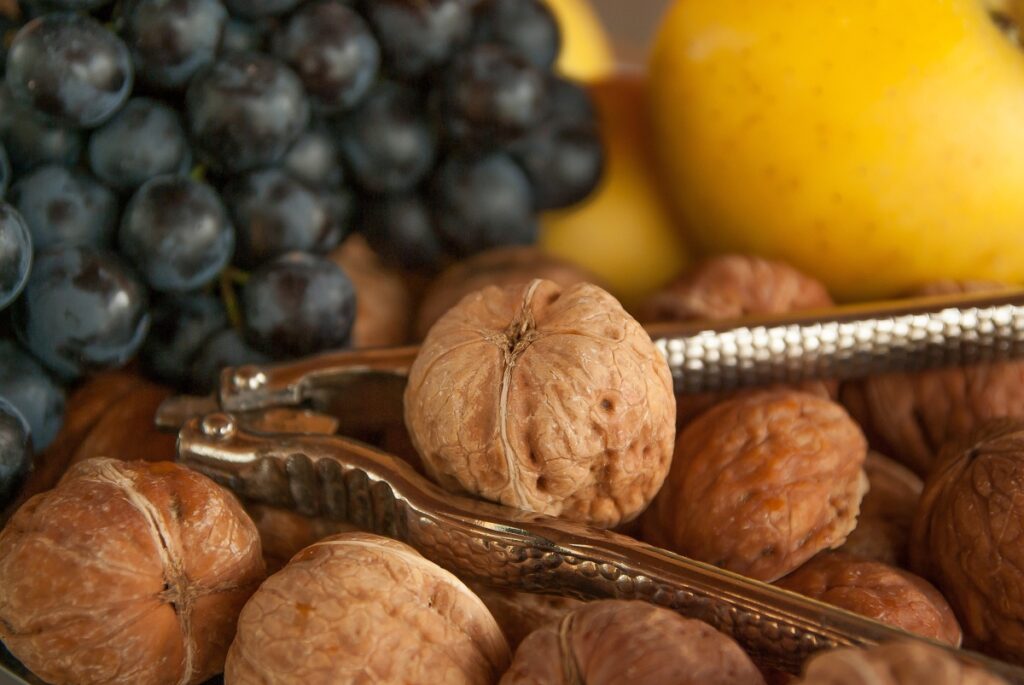
10 Ways to Keep Your Brain Young and Sharp


10 Ways to Keep Your Brain Young and Sharp
One of the most important aspects of longevity is healthy cognitive aging. We all want to age with vitality and a sharp mind.
The good news is, aging doesn’t have to come with cognitive decline, low moods, or forgetfulness. You can do a lot, especially through diet and lifestyle, to keep your brain young and sharp.
Two main anti-aging processes are neuroplasticity and autophagy. Neuroplasticity is your brain’s ability to change and adapt throughout life. Being highly intellectual early in life can increase neuroplasticity that extends further into old age, albeit at a decreased level.
Autophagy removes old and damaged brain cell components and replaces them with new and healthy ones. It can help sharpen your brain and is essential for memory, cognition, brain health, and the prevention of neurodegeneration.
We can also improve brain health through diet and lifestyle choices.
1. Exercise

Regular exercise helps our brain remain healthy. Research suggests that exercise may support learning, memory, and a balanced mood, contributing to overall wellbeing. Here is a list of brain-related benefits exercise may provide:
- Increases neuroplasticity by strengthening and potentiating synapses (structures that allow neurons to pass the nerve signals to other neurons)
- Strengthens and supports metabolism, blood vessel function, and the creation of new neurons (neurogenesis)
- Induces brain growth factors and their cascades, such as neurotrophins, brain-derived neurotrophic factor (BDNF), and nerve growth factors that improve neuronal survival
- Promotes neuroplasticity and promotes a healthy inflammatory response
2. Sleep
Copious amounts of caffeine cannot compensate for the impact of sleep deprivation on your brain.
The glymphatic system comprises lymph and glial cells, which perform housekeeping roles in your brain. Your glymphatic system performs waste removal to keep your brain functioning well during sleep. The nighttime hormone melatonin is a clearing agent that stimulates the glymphatic. Your glymphatic system is mainly active during sleep and disengaged during wakefulness.
Several studies support the idea of memory consolidation and learning assimilation during sleep stages. According to them, sleeping is deeply involved in memory functions.
A study in mice examined the effect of daily short sleep followed by sleeping in on the weekends. They found that sleep deprivation caused lasting behavioral, neuroanatomical, and molecular abnormalities.
Similar consequences appeared with sleep fragmentation in mice (repetitive short interruptions of sleep). A good night’s sleep and healthy sleep cycles are essential for keeping your brain young and healthy.
Related: A Better, Deeper Slumber: How Much Magnesium For Sleep?
3. Engaging in intellectual activities
Your brain is a “use it or lose it” organ. You can keep your brain active by learning new skills such as quilting or languages. Also, you can engage in new hobbies.
Taking these measures protects the brain from the risk of cognitive decline. Known as “cognitive reserve,” some believe this may also help the brain become more adaptable in some mental functions.

4. Meditation
Meditation originated in India and became widespread in Western societies, including the USA. Meditation has many beneficial effects, both mental and physical. Health benefits of meditation include:
- Improved stress response
- Improved mood
- Reduced pain (both physical and psychological)
- Improved memory
- Increased efficiency
Meditation also increases blood flow to the brain and increases attention. A study found that meditators were faster on all tasks. As we age, gray matter, which contains neurons, decreases. The meditation experience increases gray matter in the brain.
5. Sex
More frequent sexual activity in older adults improves brain function. People with regular sexual activity scored higher on verbal fluency and visual perception.
A study conducted on 28 men and 45 women measured different patterns of brain function. These tests focused on attention, memory, fluency, language, and visuospatial ability. Frequent sexual activity did not impact memory, language, and attention. Yet, it improved visuospatial ability, which relates to identifying relationships between visual and spatial objects, such as drawing and buttoning shirts.
Also, sexual activity influences verbal fluency. We need more research on the correlation between brain health and sexual activity.
6. Dietary antioxidants
The brain uses a lot of oxygen and has high metabolic activity. Thus, it is more at risk of free radical damage than any other body area. Free radical damage to brain cells can result in memory loss.
Antioxidants may help counteract the unstable molecules that comprise free radicals. They may help reverse some symptoms of aging, such as memory loss.
Flavonoids like luteolin and diosmin, found in foods such as green peppers, tomatoes, and lemons, are being may support brain health. Including antioxidant-rich foods like artichokes, cilantro, cinnamon, and citrus fruits in your diet may help promote overall wellness.
7. Omega-3 fatty acids
Omega-3 fatty acids are essential components of cell membranes, making them more flexible. They are present in brain cells and can improve the structure of brain cells (neurons). They also make mitochondria work better.
Omega-3 may help maintain myelin sheath health. Myelin is the material that surrounds nerves, which allows for efficient electrical signal conduction. Omega-3 boosts the function of nerve membranes and contributes to the regrowth of the myelin sheath.
People with high Omega-3 fatty acid levels have more cerebral blood flow than those with less Omega-3. These fatty acids also improve brain function, suggesting a diet rich in Omega-3 fatty acids can improve brainpower. Foods rich in these acids include oily fish such as salmon and flaxseeds.
To find out more about a diet that supports normal brain function, you may want to check out this article.

8. Ketogenic diet
Unlike other body cells, brain cells cannot use fatty acids as an energy source. The primary energy source for brain cells is glucose, however, neurons can also use ketones as fuel. The ketogenic diet is low in carbs and proteins and very high in fat to increase blood ketone levels.
The ketogenic diet may help reduce the risk of mitochondrial problems and increase cellular energy. Your mitochondria are comfortable with glucose as a source of energy. However, if we shift to ketones as an energy source, old and weak mitochondria die and are replaced with new and stronger ones, which results in greater energy production.
The keto diet may also:
- Promote a balanced inflammatory response
- Increase concentration
- Increase focus and mental clarity
- Slows down aging
- Mitigate the risk of chronic diseases related to poor blood sugar control
Also, it seems to be linked with autophagy, as ketones are believed to induce neuronal macroautophagy as a rational strategy to lower the risk of cognitive decline and eliminate damaged mitochondria.
Brain-derived neurotrophic factor (BDNF) is an essential protein. It influences brain function and the peripheral nervous system, prevents the death of brain cells, induces the growth of new neurons and synapses, and supports cognitive function. Studies show a keto diet can directly increase BDNF levels due to less dependence on glucose, as ketones better increase the upregulation of BDNF.
9. Resveratrol
Resveratrol is a polyphenol found in the skin of grapes, red berries, and nuts. It supports neuroplasticity and improves brain function.
It can improve cognition and mood and enhance hippocampal plasticity. Yet, some results show it to have the opposite effect, and we need further research.
Sir2 (silent information regulator 2) is an anti-aging protein that maintains stability and homeostasis under challenging conditions, such as fasting and caloric restrictions. Resveratrol activates Sir2.

10. Magnesium
Because magnesium participates in over 300 reactions in your body, it’s also crucial for brain function. Usually, it inhibits the actions of the excitatory neurotransmitter glutamate. Magnesium blocks the calcium channel of the N-methyl-D-aspartate (NMDA) glutamate receptor.
The NMDA receptor regulates calcium entry into the postsynaptic neuron. This is important for protecting neurons from day-to-day stress and toxic exposure. Both of these are connected with reducing brain magnesium levels and the influx of glutamate and calcium into the neuron.
Magnesium may also relax the blood vessels and improve cerebral blood flow. It may also provide mood support.
You can find magnesium in:
- Greens
- Nuts
- Seeds
- Dry beans
- Whole grains
Roughly 75% of Americans don’t get the recommended daily magnesium intake.
To ensure that you take healthy magnesium levels, take Magnesium Breakthrough to help you achieve an optimized mind and body. It contains seven forms of magnesium that support:
- Balanced stress response and healthy stress resilience
- Calmness and a healthy relaxation response
- Healthy sleep onset and quality
- Immune system balance readiness
- Cardiovascular health
- Bone health
References
- Voss P, Thomas ME, Cisneros-Franco JM, de Villers-Sidani É. Dynamic brains and the changing rules of neuroplasticity: Implications for learning and recovery. Front Psychol. 2017;8:1657. doi:10.3389/fpsyg.2017.01657
- Cotman CW, Berchtold NC, Christie L-A. Exercise builds brain health: key roles of growth factor cascades and inflammation. Trends Neurosci. 2007;30(9):464-472. doi:10.1016/j.tins.2007.06.011
- White LJ, Castellano V. Exercise and brain health ??? Implications for multiple sclerosis: Part 1 ??? Neuronal growth factors. Sports Med. 2008;38(2):91-100. doi:10.2165/00007256-200838020-00001
- Jessen NA, Munk ASF, Lundgaard I, Nedergaard M. The glymphatic system: A beginner’s guide. Neurochem Res. 2015;40(12):2583-2599. doi:10.1007/s11064-015-1581-6
- Peigneux P, Laureys S, Delbeuck X, Maquet P. Sleeping brain, learning brain. The role of sleep for memory systems. Neuroreport. 2001;12(18): A111-24. doi:10.1097/00001756-200112210-00001
- Puchkova AN. Studies of Learning during Sleep: Problems, Progress, and Perspectives. Neurosci Behav Physiol. 2020;50(3):257-263. doi:10.1007/s11055-020-00895-1
- Fung CH, Vitiello MV, Alessi CA, Kuchel GA, AGS/NIA Sleep Conference Planning Committee and Faculty. Report and research agenda of the American Geriatrics Society and National Institute on aging Bedside-to-Bench conference on sleep, Circadian Rhythms, and aging: New Avenues for Improving Brain Health, Physical Health, and Functioning. J Am Geriatr Soc. 2016;64(12):e238-e247. doi:10.1111/jgs.14493
- Cognitive health and older adults. National Institute on Aging. Accessed December 29, 2021. https://www.nia.nih.gov/health/cognitive-health-and-older-adults
- Sharma H. Meditation: Process and effects. Ayu. 2015;36(3):233-237. doi:10.4103/0974-8520.182756
- Frequent sexual activity can boost brain power in older adults. ScienceDaily. Accessed December 29, 2021. https://www.sciencedaily.com/releases/2017/06/170622083020.html
- Hole KL, Williams RJ. Flavonoids as an intervention for Alzheimer’s disease: Progress and hurdles towards defining a mechanism of action. Brain Plast. 2021;6(2):167-192. doi:10.3233/BPL-200098
- Siegert E, Paul F, Rothe M, Weylandt KH. The effect of omega-3 fatty acids on central nervous system remyelination in fat-1 mice. BMC Neurosci. 2017;18(1):19. doi:10.1186/s12868-016-0312-5
- Amen DG, Harris WS, Kidd PM, Meysami S, Raji CA. Quantitative erythrocyte omega-3 EPA plus DHA levels are related to higher regional cerebral blood flow on brain SPECT. J Alzheimers Dis. 2017;58(4):1189-1199. doi:10.3233/JAD-170281
- Menshikova EV, Ritov VB, Fairfull L, Ferrell RE, Kelley DE, Goodpaster BH. Effects of exercise on mitochondrial content and function in aging human skeletal muscle. J Gerontol A Biol Sci Med Sci. 2006;61(6):534-540. doi:10.1093/gerona/61.6.534
- Pitceathly RD, Viscomi C. Effects of ketosis in mitochondrial myopathy: potential benefits of a mitotoxic diet. EMBO Mol Med. 2016;8(11):1231-1233. doi:10.15252/emmm.201606933
- McCarty MF, DiNicolantonio JJ, O’Keefe JH. Ketosis may promote brain macroautophagy by activating Sirt1 and hypoxia-inducible factor-1. Med Hypotheses. 2015;85(5):631-639. doi:10.1016/j.mehy.2015.08.002
- Masino SA, Rho JM. Mechanisms of ketogenic diet action. In: Jasper’s Basic Mechanisms of the Epilepsies. Oxford University Press; 2012:1003-1024.
- Stafstrom CE, Rho JM. The ketogenic diet as a treatment paradigm for diverse neurological disorders. Front Pharmacol. 2012;3:59. doi:10.3389/fphar.2012.00059
- Paoli A, Bianco A, Damiani E, Bosco G. Ketogenic diet in neuromuscular and neurodegenerative diseases. Biomed Res Int. 2014;2014:474296. doi:10.1155/2014/474296
- Dias GP, Cocks G, do Nascimento Bevilaqua MC, Nardi AE, Thuret S. Resveratrol: A potential hippocampal plasticity enhancer. Oxid Med Cell Longev. 2016;2016:9651236. doi:10.1155/2016/9651236
- Wu A, Ying Z, Gomez-Pinilla F. Omega-3 fatty acids supplementation restores mechanisms that maintain brain homeostasis in traumatic brain injury. J Neurotrauma. 2007;24(10):1587-1595. doi:10.1089/neu.2007.0313
- Borra MT, Smith BC, Denu JM. Mechanism of human SIRT1 activation by resveratrol. J Biol Chem. 2005;280(17):17187-17195. doi:10.1074/jbc.M501250200
- Institute of Medicine (US) Committee on Nutrition, Trauma, and the Brain, Erdman J, Oria M, Pillsbury L. Magnesium. National Academies Press; 2011.
- Guerrera MP, Volpe SL, Mao JJ. Therapeutic uses of magnesium. Am Fam Physician. 2009;80(2):157-162. Accessed December 29, 2021. https://www.aafp.org/afp/2009/0715/p157.html
